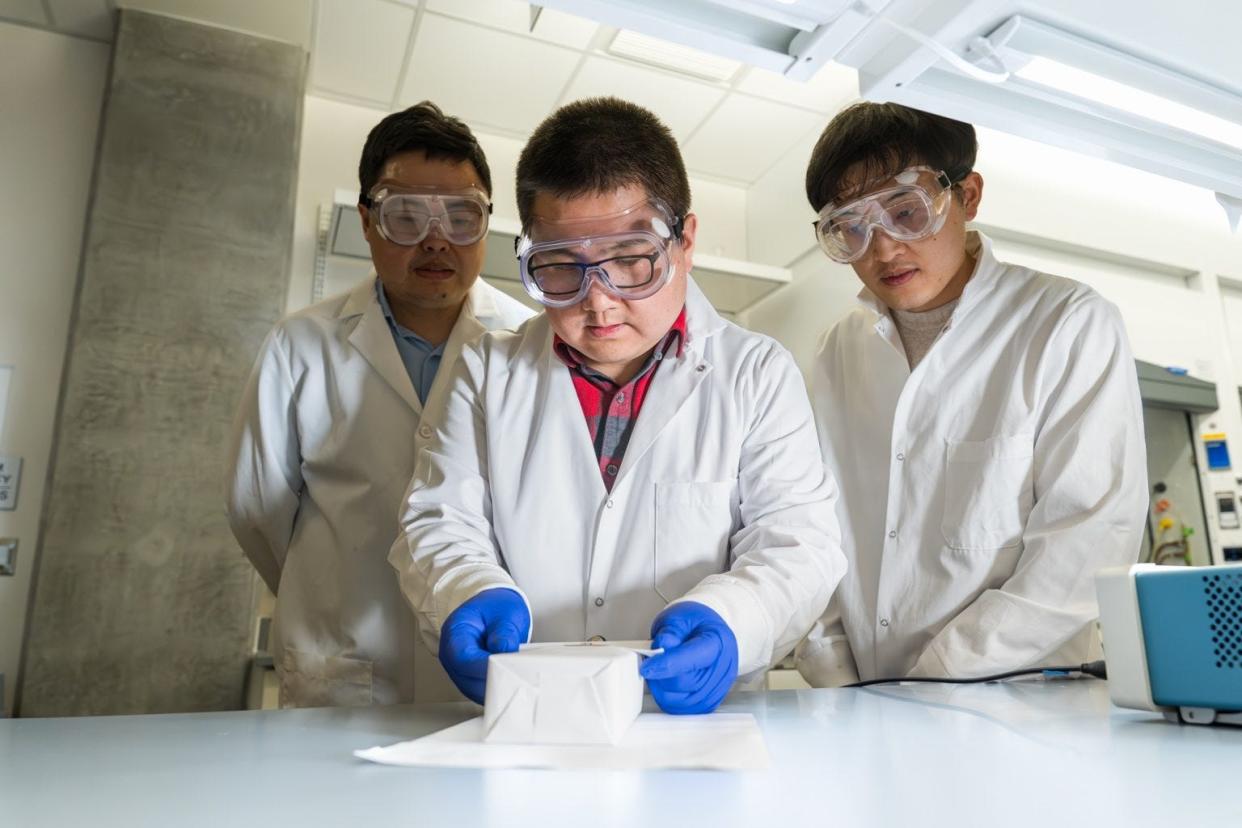MU research team is developing a soft, self-charging material that monitors vital signs

A soft, self-charging material being developed by a team at the University of Missouri may soon be used in clothing that monitors an individual's vital signs.
And it's machine-washable.
Zheng Yan, associate professor in the MU College of Engineering, leads the research team.
"Phase-separated porous nanocomposite with ultralow percolation threshold for wireless bioelectronics" was published in Nature Nanotechnology. The research is funded by the National Institutes of Health.
The on-skin, wearable, soft bioelectronics charges itself, but doesn't use batteries, said Yan, who also is a researcher in the Roy Blunt NextGen Precision Health Building.
A stable, electrical current can be maintained during movement because the soft material acts as an electrical conductor, Yan said. A magnetic connection is used in the wireless charging.
It's similar to charging a mobile phone wirelessly, Yan said.
The material can monitor heart activity, blood pressure and other vital signs, with the goal of someday sharing the information wirelessly with a health care provider.
"Its primary uses are in health care," Yan said.
That the material is waterproof and machine-washable lends it to more practical applications, Yan said.
The previous work of Yan and his team was a basis for his current research.
The team may have the research in its final form and ready for development in four to five years, Yan said.
Roger McKinney is the Tribune's education reporter. You can reach him at rmckinney@columbiatribune.com or 573-815-1719. He's on X at @rmckinney9.
This article originally appeared on Columbia Daily Tribune: MU researchers developing bioelectronic cloth to measure vital signs

